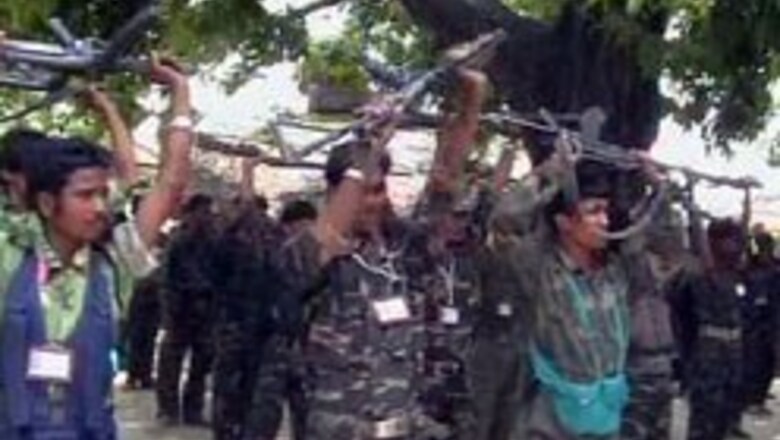
views
Kathmandu: After spurning Nepal's Maoist guerrillas during King Gyanendra's direct rule, China, now realising the rebels could become part of the new Government, has stepped up overtures to them, a gesture that is worrying Nepal as well as the international community.
It is feared that Beijing could have entered into a "secret deal" to supply weapons to the Maoists in a bid to placate them after its earlier repudiation of them as anti-government forces that tarnished the image of Mao Zedong by calling themselves followers of the late Chinese revolutionary leader's philosophy.
On July 1, three Chinese Government officials made a secret trip to Nepal to hold talks with top leaders of the Maoists.
Wang Je Chuan, a former counsellor at the Chinese embassy in Kathmandu, who is known to have had contacts with the Maoists during his tenure, was brought in from Bangkok to open negotiations with the guerrillas.
Wang, who arrived in Kathmandu from Bangkok, was met by two Chinese intelligence agents and the group proceeded to a resort in popular tourist destination Dhulikhel, where they met Maoist supremo Pushpa Kamal Dahal, his deputy Baburam Bhattarai and former Member of Parliament and Maoist Spokesman Krishna Bahadur Mahara.
The Chinese officials and the Maoist leaders then visited Kavre district near the capital to watch the guerrilla army, the People's Liberation Army, practising its manoeuvres.
The first whiff of the Chinese overture came when a former home minister and Member of Parliament raised the issue in Parliament, asking the government for a clarification.
Govinda Raj Joshi, who is a member of Prime Minister Girija Prasad Koirala's Nepali Congress, told the Nepali Congress Parliamentary Party last week that there have been reports in the local media about the Chinese Government providing arms to the guerrillas.
PAGE_BREAK
According to the reports, the arms had surfaced in Jumla in northern Nepal, near the Tibetan border.
"We have heard that the Maoists have obtained arms from China," Joshi said.
"This is a serious issue. We are asking Home Minister Krishna Prasad Sitaula to clarify," he added.
Beijing's renewal of direct contact is a cause of alarm for the Government and Army of Nepal as well as the international community.
The seven-party ruling alliance and Nepal's major donors want the Maoists to lay down their arms before they join the government.
The Koirala Government has pledged to hold Constituent Assembly elections by April 2007, when the nation would vote to decide if they want to remain a monarchy or become a republic. The international community says the poll would not be free and fair unless the guerrillas disarm.
A European Parliament delegation that wound up its Nepal visit on Friday became the latest foreign voice to ask the Maoists to lay down arms, saying they could not take part in the government or polls bearing "guns on their shoulders".
However, China's Nepal policy has always differed from the international stand.
Last year, when King Gyanendra established direct royal rule, Beijing stepped up arms sales to the royal regime and made a whopping profit while Nepal's major donors curtailed assistance and India, the US and UK suspended military supplies.
But when King Gyanendra's Government fell after 15 months due to nationwide protests, China, realising it had backed the wrong horse, rushed its envoys to Kathmandu to woo the opposition parties as well as the Maoists.
The Chinese volte-face is especially alarming for the Nepal army. With recruitment and buying of arms stopped, the hemmed-in army can only watch with mounting unease the Maoist guerrillas stepping up their recruitment and donation drive, taking advantage of a ceasefire.




















Comments
0 comment